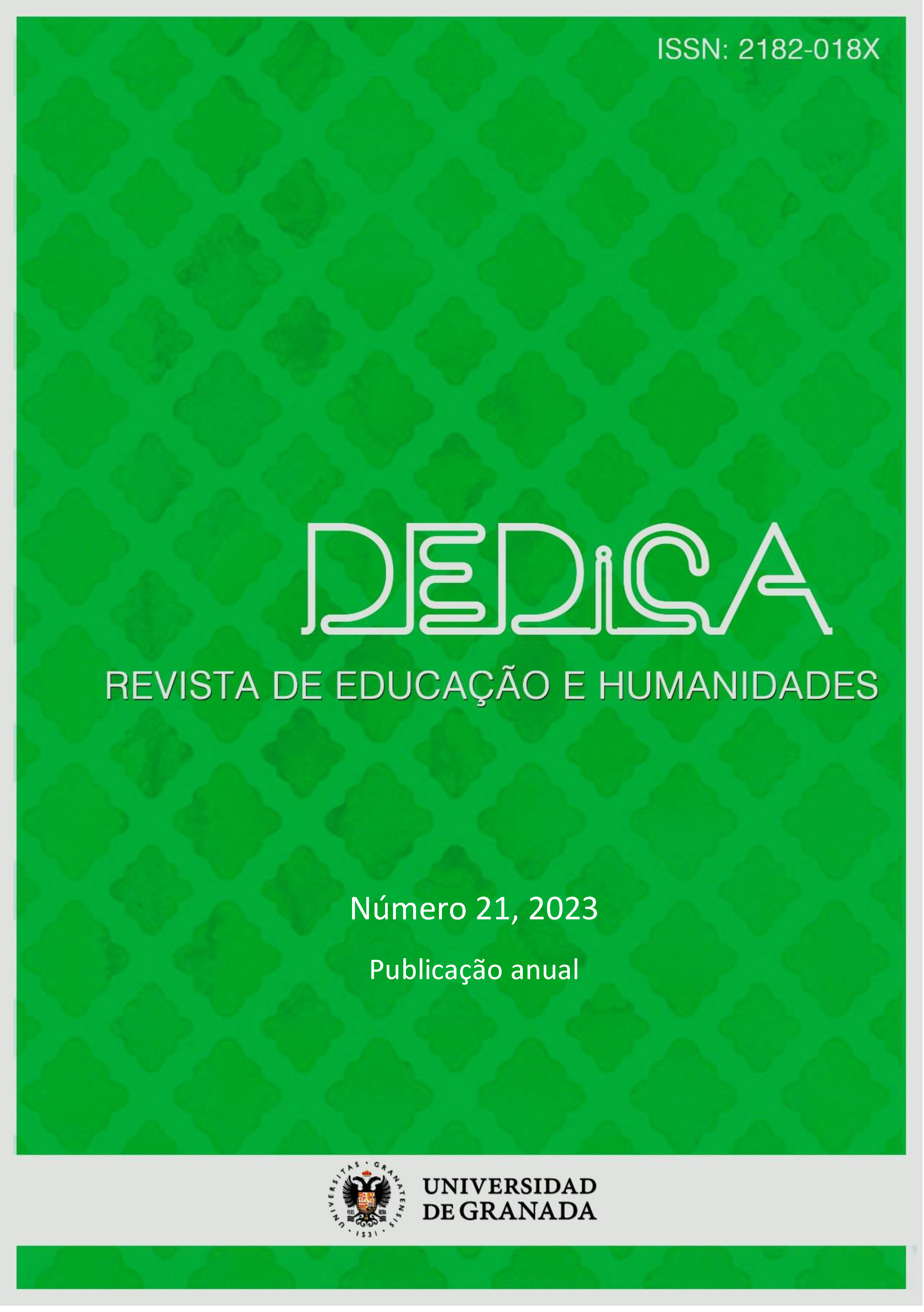The body as the conductor of man in Clemente of Alexandria’s The Pedagogue
DOI:
https://doi.org/10.30827/dreh.21.2023.27613Abstract
The objective of this paper is to understand the representation of the body as a conductor of human actions in Clement of Alexandria’s work The Pedagogue. In this work, the author weaves reflections on Christianity using elements from classical culture. Clement writes for children and this period marks the knowledge of the Didaschaleus. To carry out this study, we will use social history from the long duration perspective. In this sense, we started by describing the Alexandrian setting at the time Clement lived and lived together, to later consider him in his time and understand his contributions to the history of the body. Furthermore, we were able to observe the social transformations that the East was going through at that time, and that the body in ancient history is active in the construction of the imaginary leading men. Furthermore, readings from other historical times can help us with examples to broaden our view of the moment in which we are inserted and of the problems we live with.
Downloads
References
Alexandria, C. (2014). O Pedagogo. Ecclesia.
Bloch, M. (2001). Apologia da história ou o ofício de historiador. Zahar.
Boehner, P.; Gilson, E. (1970). História da filosofia cristã: desde as origens até Nicolau de Cusa. Vozes.
Burns, E. M. (1974). História da civilização ocidental: do homem das cavernas até a bomba atômica. Globo.
Charumbo, M. A. J. (2021). O martírio gnóstico segundo Clemente de Alexandria. Dissertação (Mestrado integrado em Teologia) – Faculdade de Teologia, Universidade Católica Portuguesa.
Clímaco, J. C. (2007). Cultura e poder na Alexandria romana. Tese (Doutorado em História Social) - Faculdade de Filosofia, Letras e Ciências Humanas, Universidade de São Paulo.
Corbin, A.; Courtine, J.; Vigarello, G. (2008). História do corpo: da renascença às luzes. Vozes.
De Coulanges, F. N. (2006). A cidade antiga. Edameris.
Faria, E. S. (1978). Alexandre, o grande – a difusão da cultura grega pelas armas. En: História universal: dos clãs aos impérios. Abril Cultural.
Ferreira, J. R. (2004). Grécia antiga: sociedade e política. Edições 70.
Funari, P. (2002). Grécia e Roma. Contexto.
Le Goff, J.; Truong, N. (2006). Uma história do corpo na Idade Média. Civilização Brasileira.
Veyne, P. (2009). Introdução. En: História da vida privada, I: do império ao ano mil. Companhia das Letras.
Vigarello, G. (2003). A história e os modelos do corpo. Pró-posições, 14(2), 21-29.












